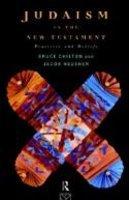
Book Summary
Chilton and Neusner contend that, contrary to conventional wisdom, early Christians identified not as Christians, but as Jews. Bound to be controversial, the authors examine the New Testament as a statement of the Torah of Sinai. This important work provides a provocative and trenchant critique of existing scholarship that seeks to view Christianity as autonomous from Judaism. In "Judaism in the New Testament," Bruce Chilton and Jacob Neusner, the most prolific author writing in English today, contend that, contrary to conventional wisdom, early Christians identified not as Christians, but as Jews. Drawing upon parts of the Gospels, the Letters of Paul, and the Letters to the Hebrews, Neusner and Chilton read the early Christianity as a formation of Judaism--a comprehensive, religious system that is nothing short of a Judaic account of Holy Israel. Bound to be controversial, Neusner, an accomplished Talmudic scholar and Chilton examine the New Testament as a statement of the Torah of Sinai. This important work provides a provocative and trenchant critique of existing scholarship that seeks to view Christianity as autonomous from Judaism. By examining Christianity as an extension of Judaism, Neusner and Chilton place Christianity in its proper historical, literary and religious context.
Book Details
| Book Name | Judaism In The New Testament |
| Author | Bruce Chilton, Jacob Neusner |
| Publisher | Routledge (Oct 1995) |
| ISBN | 9780415118446 |
| Pages | 224 |
| Language | English |
| Price | 2328 |








